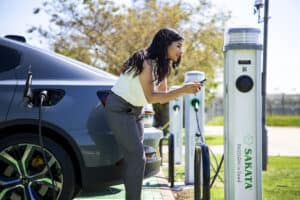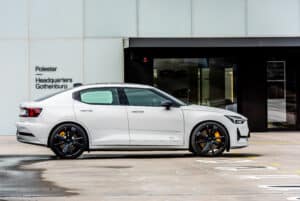
How Can You Save Money Charging Your Electric Vehicle?
It’s no secret that the shift towards electric vehicles (EVs) is rapidly accelerating. Not only do they contribute to a healthier environment by reducing emissions,

It’s no secret that the shift towards electric vehicles (EVs) is rapidly accelerating. Not only do they contribute to a healthier environment by reducing emissions,

Cost Effective Having an EV charger at home allows you to minimise the cost of charging your car at public charging stations. Public charging is

How much does an EV charger cost? On average you will pay between £850 and £1,200 + VAT for a smart charger, including hardware and

We are delighted to have been asked to help support the Milton Keynes & District Development League who have designed an app and visor information

Shopping for an EV home charger can be frustrating. There are so many options on the market, and most chargers have overlapping features. So what

At the end of April 2023, there were 42,566 electric vehicle charging points across the UK, across 24,909 charging locations. This represents a 37% increase

More than 20,000 new electric cars (EVs) were sold in the UK in April 2023, with EVs accounting for 15.4% of total registrations, according to

Rolec QUBEV SMART The UK’s most affordable EV charging unit This intelligent, modern yet low-cost unit has been designed to provide electric vehicle drivers with

Have you decided to ditch your diesel or petrol car for an electric equivalent? If you have, then that is great news but before the

Go Car Charge is registered in the UK. Company number: 13292562 | VAT Number: 382 2279 87